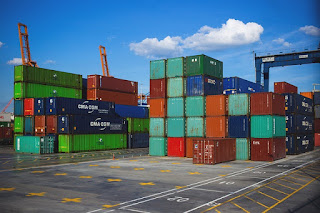Overview of the economic structure of Nepal
The World Bank published a report, warning Nepal about the remittance risk, but why has the World Bank warned us? Have you ever wondered about it? Another question is here for you. Is it only a concern for the Nepal Government?
To get an answer to this question, we must have some knowledge of the current scenario of Nepal along with a brief history. Why should I be concerned about the World's Bank Report?
A huge amount of remittance (over $5 billion) was received by Nepal recently and among all the nations, Middle-Eastern nations were the most remittance sending nations (Malaysia in the top position), according to the statistic.
According to the report published by the World Bank, the remittance from the middle-eastern nations are expected to significantly decrease in the near future. It's because of the economic crisis that is expected to worsen in the near future in the OPEC nations(mostly middle-eastern nations). This means lesser demands for labors, lesser imports because of a lower foreign reserve, which will ultimately lead to an economic crisis.
This information should not only be a matter of concern for those who are aiming to apply for the jobs in the middle-eastern nations, but this report should also be a matter of concern for those living in Nepal who are not planning to apply for the jobs in the middle-eastern nations.
Nepal may not be able to achieve the positive balance of payment in the near future like it's achieving now because of a huge remittance. What is the balance of payment and why should you be concerned about it? It's a ridiculously simple concept.We will discuss it in the next section of this article.
This information should not only be a matter of concern for those who are aiming to apply for the jobs in the middle-eastern nations, but this report should also be a matter of concern for those living in Nepal who are not planning to apply for the jobs in the middle-eastern nations.
Nepal may not be able to achieve the positive balance of payment in the near future like it's achieving now because of a huge remittance. What is the balance of payment and why should you be concerned about it? It's a ridiculously simple concept.We will discuss it in the next section of this article.
What is BOP and why should I be concerned about it?
The balance of payment is simply the difference between the amount of money coming into the country and the amount of money going out of the country. Suppose, the nation imports $3 million of goods and it exports $2 million of goods, then the balance of payment is -$1 million, which is a negative balance of payment.
Nepal imported over 81967 million NPR recently, according to the statistic( the amount is steadily increasing). However, the export is only around 5641.2 million NPR.
In the past, BOP was maintained to a huge extent due to tourism and exports. Now, the massive increase in the import and decrease in export has made it impossible to balance the BOP with only exports and tourism sector. Despite the huge difference between exports and imports, the BOP of Nepal is still positive. How? It's because of massive remittance.
To import a huge amount of goods from the foreign market, a nation usually uses US dollars (90% of the international transactions are done in US dollars. Nepal is getting a huge foreign currency reserve because of a huge amount of remittance.
A decrease in remittance in the near future means that our foreign currency reserve will keep on decreasing because imports are not likely to decrease in the near future. We will still need to import petroleum products, mobile phones, foods, and other goods and commodities.
How will we import all the necessary goods if there is a decrease in a remittance?
The only way for Nepal to maintain a positive BOP in the future is by limiting the imports of unnecessary goods and increasing our exports (which will bring more foreign currency in the nation). We can do it by investing more in productive sectors. The imports of vegetables and other foods can be reduced by focusing more on the agricultural sector and bringing new technology to boost the production.
However, this can only be possible if businessmen and politicians focus on a long-term benefit rather than focusing on short-term benefits.
If you have any comments or opinions, then please let me know by commenting below. Also, share this with your loved ones to spread the message.




Comments
Post a Comment